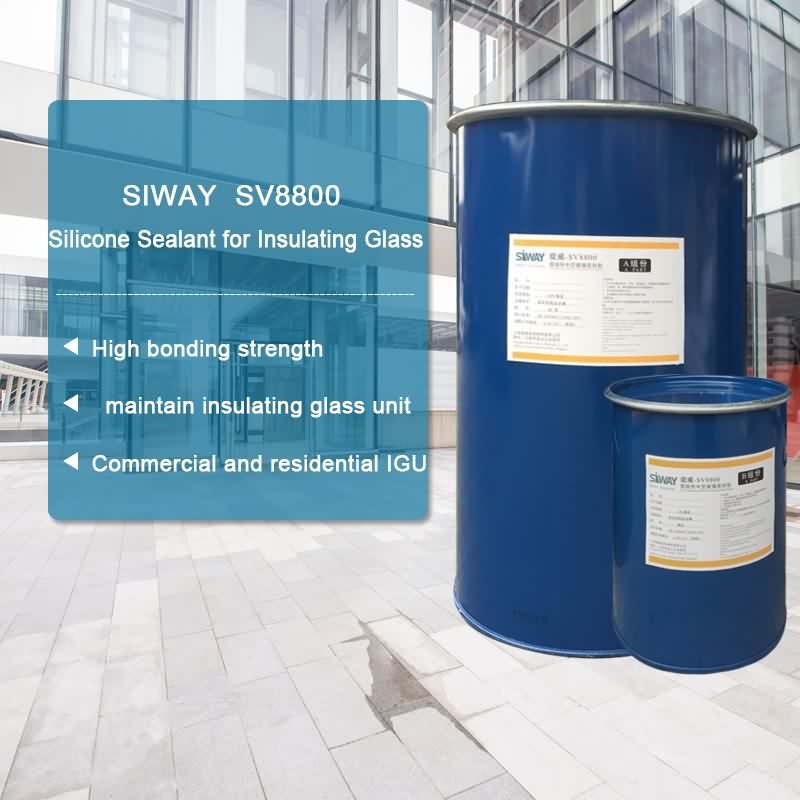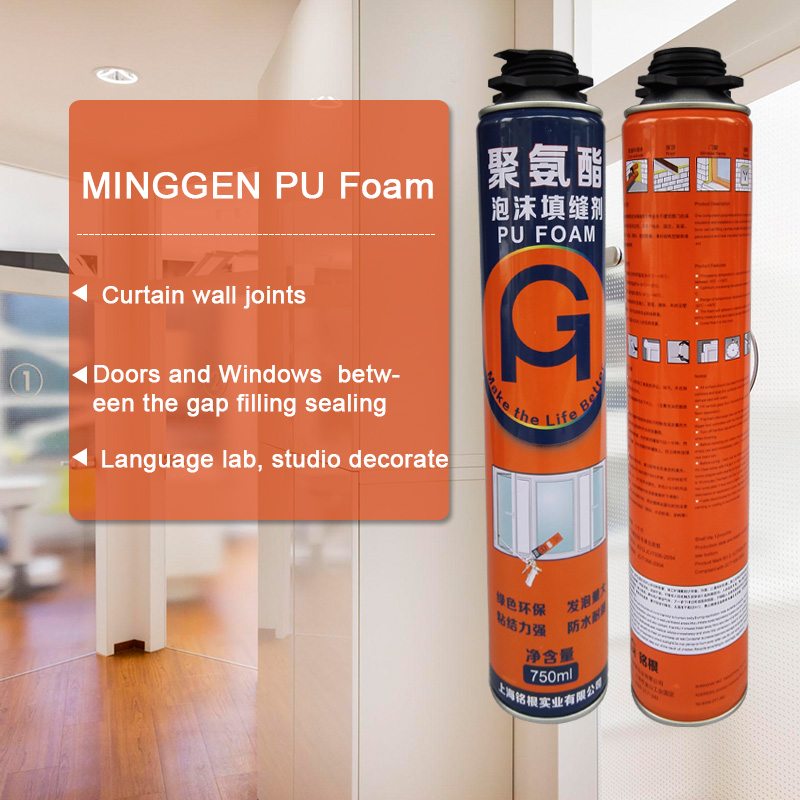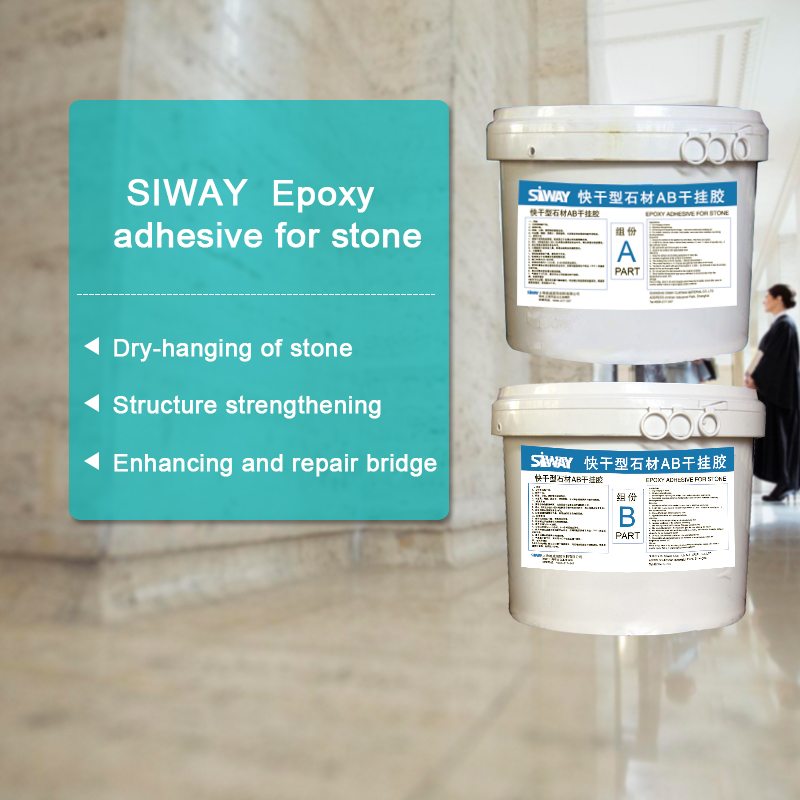Europe style for SV-8800 Silicone Sealant for Insulating Glass Wholesale to Georgia
Short Description:
Description SV-8800 is two components, high modulus; neutral curing silicone sealant specifically developed for assembly of high performance insulated glass units as secondary sealing material. Where to use It is a two-component silicone that offers variable work life with high bonding strength to maintain the integrity of insulating glass unit, suits both commercial and residential IGU. Key Features 1. High Modulus 2. UV resistance 3. Low vapor and gas transmission 4. Primerless adhesion...
Our products are widely recognized and trusted by users and can meet continuously changing economic and social needs of Europe style for SV-8800 Silicone Sealant for Insulating Glass Wholesale to Georgia, Please send us your specifications and requirements, or feel free to contact us with any questions or inquiries that you may have.
Description
SV-8800 is two components, high modulus; neutral curing silicone sealant specifically developed for assembly of high performance insulated glass units as secondary sealing material.
Where to use
It is a two-component silicone that offers variable work life with high bonding strength to maintain the integrity of insulating glass unit, suits both commercial and residential IGU.
Key Features
1. High Modulus
2. UV resistance
3. Low vapor and gas transmission
4. Primerless adhesion to coated glass
5. 100% compatible to SV-8890
Technical data sheet
| Test standard | Test project | Unit | value |
| Before curing——25℃,50%R.H. | |||
| GB13477 | Specific gravity(After mixing) | 1.33 | |
| GB13477 | Operating time | min | 20-40 |
| GB13477 | surface drying time(25℃,50%R.H.) | min | 80-188 |
| corrosivity | No | ||
| 7 days after curing——25℃,50%R.H. | |||
| GB/T 531 | Durometer Hardness | Shore A | 40 |
| GB13477 | The tensile modulus at 12.5% elongation | Mpa | 0.18 |
| The ultimate tensile strength | Mpa | 0.92 | |
| GB13477 | Elongation limit (fracture) | % | 150 |
Certification
GB-24266-2009;
Color
Component A(Base) – White, Component B(Catalyst)- Black
Package
1. Component A(Base): (190L), Component B(Catalyst) (18.5L)
2. Component A(Base):24.5kg (18L), Component B(Catalyst): 1.9kg (1.8L)
Shelf life
12 months
Note
If you want the TDS or MSDS or other details, please contact with our sales person.
How Maryland government plays 3 card monty with your taxes.
FOX 5 Investigation Follow Up: Trust Fund Taxes
Posted: Jan 19, 2012 6:49 PM EDT
Nobody likes paying taxes. But now and again, citizens agree to new or higher taxes because they are told it is needed for a special purpose, like fixing roads or cleaning up the Chesapeake Bay.
In Maryland, every time you fill up your gas tank, flush your toilet, buy a house, new tires, or a boat, special taxes are collected. The money is supposed to go to dedicated trust funds. But Maryland has a habit of dipping into those funds, then borrowing money to replace it.
“It’s alarming. People should be alarmed,” said Montgomery County Delegate Luis Simmons, when FOX 5 interviewed him last fall for our investigation “Raiding the Trust.”
After digging through stacks of budget documents, we discovered that last year, Maryland lawmakers raided more than 50 special funds – taking nearly a billion dollars out of those banks and transferring them to the general fund to close the state’s budget gap – but leaving big holes in other programs.
“It’s a sin and a shame, that’s what it is,” said AAA Mid-Atlantic’s John Townsend.
He is referring to the annual raids on the Transportation Trust Fund. Gas taxes, car title and registration fees, and rental car taxes help fill this fund.
Cities and counties depend on their share, called Highway User Revenue, to maintain roads and clear snow. Last year, lawmakers moved most of the local money – $372 million – to the state’s purse.
“One significant reason we’re not repairing roads is that we’re taking the money that was dedicated, and solicited from the public on the pretext of repairing roads, and using it for a hundred other purposes,” said Delegate Simmons.
Another big fund is the Bay Restoration Fund. Homeowners pay a $2.50 fee each month, lovingly known as the “flush tax.” They are told the money is needed for upgrades to the state’s wastewater treatment plants to reduce nitrogen runoff and protect the Chesapeake Bay.
State budget documents show $155 million was transferred out of the fund for fiscal year 2010, $45 million for 2011, and $90 million for 2012. The money is gradually being put back through issuing state debt.
Governor Martin O’Malley’s aides denied my request for an interview on the subject last fall.
I got a chance to ask him, and his Secretary of Budget and Management, about it when they revealed the FY2012 budget in Annapolis Wednesday.
Read more: https://www.myfoxdc.com/story/17931742/fox-5-investigation-follow-up-trust-fund-taxes#ixzz2UfBrtsqz



